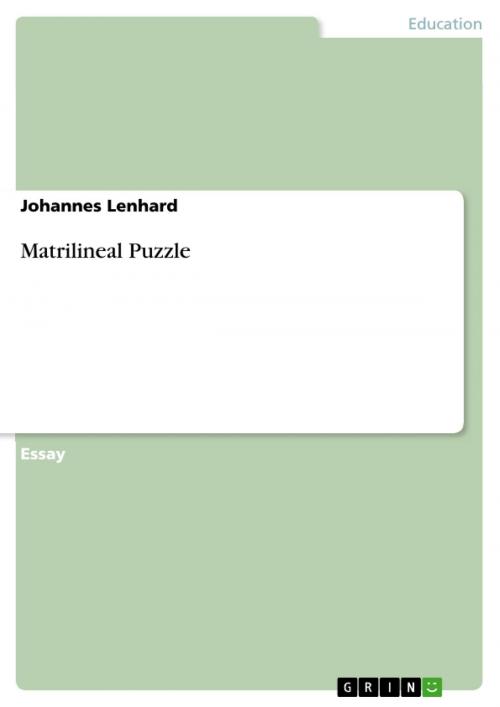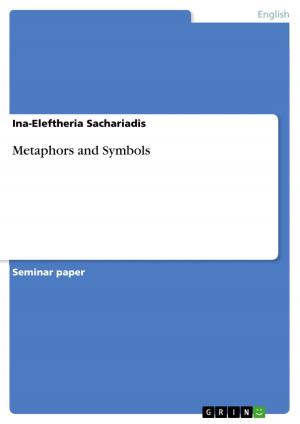| Author: | Johannes Lenhard | ISBN: | 9783656323839 |
| Publisher: | GRIN Publishing | Publication: | November 28, 2012 |
| Imprint: | GRIN Publishing | Language: | English |
| Author: | Johannes Lenhard |
| ISBN: | 9783656323839 |
| Publisher: | GRIN Publishing |
| Publication: | November 28, 2012 |
| Imprint: | GRIN Publishing |
| Language: | English |
Essay from the year 2012 in the subject Pedagogy - Science, Theory, Anthropology, grade: 65, University of Cambridge, language: English, abstract: The term 'matrilineal puzzle' was coined by Richards (Richards, 1950) and treated in a variety of both theoretical and ethnographic studies (e.g. Fuller, 1976; Gough & Schneider, 1961; Needham, 1971; Weiner, 1988). Essentially, the 'puzzle' is better described as a conflict arising from the general design of matrilineages: being based on both a principle of female descent and masculine control, a matrilineage generates a direct competition between in-marrying husbands/fathers and maternal brothers. Where is the family to live? Who has authority over the children? As Gough and Schneider (1961:29) claim, the matrilineal group is very unlikely to persist if the husband gains to much authority over wife and children. Several solutions to this dilemma can be found in the literature as well as in ethnographic studies four of which I focus upon in the following. Let me, however, introduce the underlying concepts in the introductory paragraph.
Essay from the year 2012 in the subject Pedagogy - Science, Theory, Anthropology, grade: 65, University of Cambridge, language: English, abstract: The term 'matrilineal puzzle' was coined by Richards (Richards, 1950) and treated in a variety of both theoretical and ethnographic studies (e.g. Fuller, 1976; Gough & Schneider, 1961; Needham, 1971; Weiner, 1988). Essentially, the 'puzzle' is better described as a conflict arising from the general design of matrilineages: being based on both a principle of female descent and masculine control, a matrilineage generates a direct competition between in-marrying husbands/fathers and maternal brothers. Where is the family to live? Who has authority over the children? As Gough and Schneider (1961:29) claim, the matrilineal group is very unlikely to persist if the husband gains to much authority over wife and children. Several solutions to this dilemma can be found in the literature as well as in ethnographic studies four of which I focus upon in the following. Let me, however, introduce the underlying concepts in the introductory paragraph.















